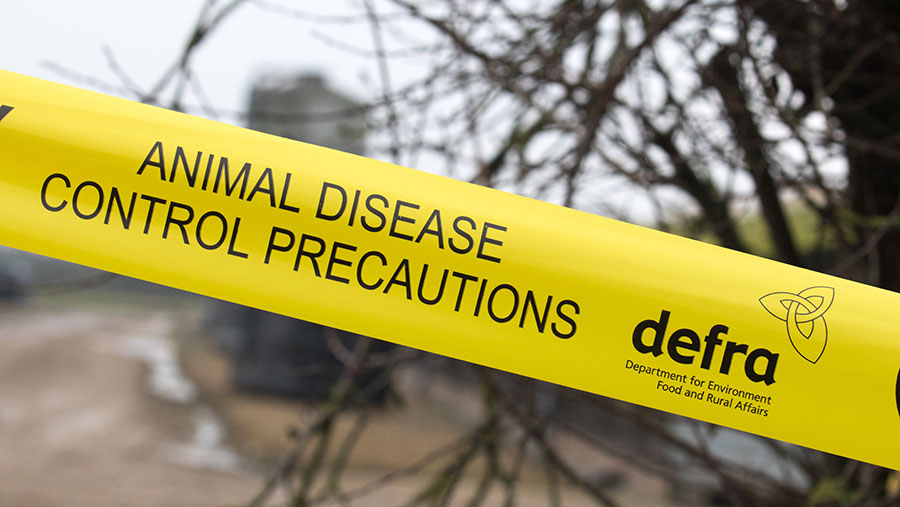Third bird flu outbreak in England sees tightening of rules
 © Tim Scrivener
© Tim Scrivener Poultrykeepers throughout Great Britain have been instructed to increase their biosecurity as the whole country has been declared an Avian Influenza Prevention Zone (AIPZ) by the UK’s chief vet.
The move follows confirmation of a third outbreak of the notifiable disease in 10 days – this time on a broiler breeder unit near Leominster, Herefordshire – and the discovery of high-pathogenic strains of the disease in wild waterfowl in the South West.
See also: Avian influenza prevention tips and how to handle an outbreak
Under prevention zone measures, it becomes a legal requirement for keepers with more than 500 birds:
- to restrict access for non-essential people on their sites
- to ensure workers change clothing and footwear before entering bird enclosures
- to ensure site vehicles are cleaned and disinfected regularly.
Backyard owners with smaller numbers of poultry, including chickens, ducks and geese, are also urged to strengthen their biosecurity to prevent further outbreaks of avian influenza in the UK.
Who to tell
Bird flu is a notifiable animal disease and failure to report suspected cases is an offence.
You can report suspected or confirmed cases in:
- England by calling the Defra Rural Services Helpline on 03000 200 301
- Scotland by contacting your local Field Services Office
- Wales by calling 0300 303 8268
- Northern Ireland by calling the Daera Helpline on 0300 2007840
In Great Britain, if you find dead wild waterfowl or other dead wild birds, such as gulls or birds of prey, you should report them to the Defra helpline 03459 33 55 77 (please select option 7). In Northern Ireland contact Daera on 0300 200 7840
See also: APHA interactive map
The latest case in Herefordshire involves an outbreak of the H5N8 flu strain in broiler breeder chickens – used to produce hatching eggs for the poultrymeat sector – though the pathogenicity of the strain is yet to be determined.
A 3km and 10km temporary control zone (PDF) has been established around the farm, and the birds will be culled imminently.
Previously, the highly pathogenic H5N8 strain was confirmed at a 13,500-bird broiler breeder unit near Frodsham, Cheshire, while on 2 November, low-pathogenic H5N2 avian influenza was confirmed in a flock of 480 birds at a premises near Deal, Kent.
High risk
The introduction of the prevention zone, which applies to England, Scotland and Wales, follows last week’s decision by expert advisers to raise the risk level for avian influenza incursion in wild birds from “medium” to “high”.
UK chief veterinary officer Christine Middlemiss said: “Whether you keep just a few birds or thousands, you are now legally required to meet enhanced biosecurity requirements. This is in your interests to do, to protect your birds from this highly infectious disease.”
NFU chief poultry adviser Aimee Mahony urged all poultrykeepers, including members of the public, to follow Defra’s biosecurity advice.
“They have an important part to play in reducing the risk of avian influenza to their own birds, as well as the commercial poultry sector.”
What you must do in a prevention zone
- Ensure the areas where birds are kept are unattractive to wild birds – for example, by netting ponds and removing wild bird food sources.
- Feed and water your birds in enclosed areas to discourage wild birds.
- Minimise movement in and out of bird enclosures.
- Clean and disinfect footwear and keep areas where birds live clean and tidy.
- Reduce any existing contamination by cleansing and disinfecting concrete areas, and fencing off wet or boggy areas.
